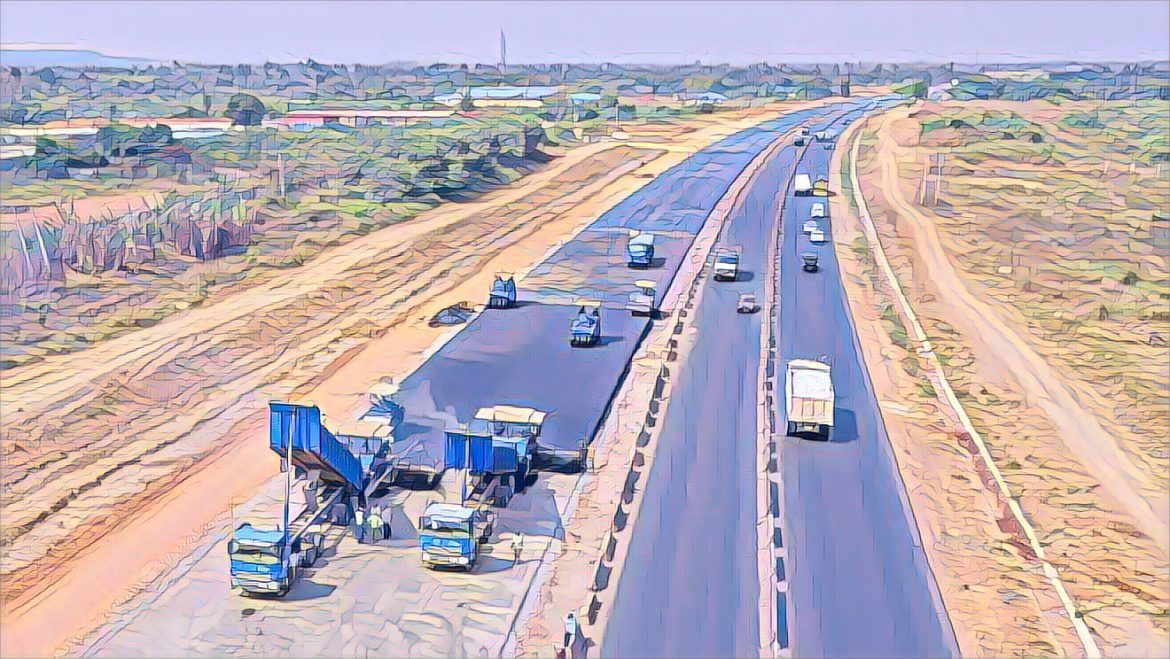In a development that has garnered significant attention, Zimbabwe’s Transport Minister, Felix Mhona, has vocally dismissed reports suggesting that the ongoing rehabilitation of the country’s road infrastructure is merely a facade to impress guests attending the upcoming Southern African Development Community (SADC) Summit in August 2024. Instead, Mhona asserts that these efforts are part of a broader, long-term vision aimed at propelling Zimbabwe towards achieving world-standard development through enhanced infrastructure.
During a media briefing held on Wednesday, while on a tour of the rehabilitation work on the Harare-Chirundu highway, Mhona emphasized the enduring nature of the infrastructure projects, contrasting them with the transient nature of events like the SADC Summit. The Minister highlighted that the goal of these initiatives is to lay down a foundation for sustained economic growth and development, underpinned by robust infrastructure, irrespective of the international events the country hosts.
Mhona’s comments come against a backdrop of skepticism from some quarters, where there has been speculation that the government’s sudden focus on infrastructure, particularly road rehabilitation, is timed to coincide with the high-profile regional summit. However, Mhona clarified that the current efforts are a continuation of the Second Republic’s commitment, led by President Emmerson Mnangagwa, to significantly enhance Zimbabwe’s infrastructure, a sector that has seen neglect for over two decades.
Acknowledging the dilapidated state of Zimbabwe’s road network, Mhona outlined the government’s comprehensive strategy to reclaim and revitalize these critical assets. The Transport Minister detailed the scope of the rehabilitation work, which extends beyond the Harare-Chirundu highway to include 40 roads within Harare and further projects in Mashonaland East, Murambinda, and Birchenough Road. This ambitious agenda underscores the government’s recognition of the pivotal role that accessible and reliable infrastructure plays in economic development and the well-being of its citizens.
The funding and execution of these projects reflect a substantial investment in the country’s future, with over ZW$550 million allocated for the Harare-Chirundu highway upgrade alone. Mhona revealed that the government has enlisted the expertise of five major local construction companies, some of which were previously involved in the Harare-Masvingo-Beitbridge highway project. These companies are tasked with rehabilitating sections of the highway, ensuring that the entire stretch up to the Chirundu Border post is upgraded to meet the demands of modern traffic and trade.
As Zimbabwe braces for the SADC Summit, the government’s infrastructure development projects, particularly in road rehabilitation, have come under the spotlight. While some may perceive these efforts as opportunistic, aimed at presenting a polished facade to regional counterparts, Minister Felix Mhona’s remarks provide a different perspective. By framing these projects within the broader context of Zimbabwe’s developmental aspirations and the necessity of solid infrastructure for economic prosperity, Mhona seeks to dispel any notions that the initiatives are short-term measures.
The government’s approach, as articulated by Mhona, signals a commitment to addressing longstanding infrastructure challenges that have hindered Zimbabwe’s growth. By prioritizing road rehabilitation and infrastructure development, Zimbabwe aims not only to enhance its attractiveness as a host for international events like the SADC Summit but also to lay the groundwork for sustainable economic development that benefits its citizens in the long run.
The narrative surrounding Zimbabwe’s infrastructure development efforts, particularly in road rehabilitation, is one of strategic investment in the country’s future. Through these initiatives, the government aspires to foster an environment conducive to economic growth, improved connectivity, and enhanced quality of life for its people, transcending the immediacy of hosting international summits. As the country moves forward, the success of these projects will be a critical determinant of Zimbabwe’s ability to achieve its developmental goals and match world standards in infrastructure and beyond.


